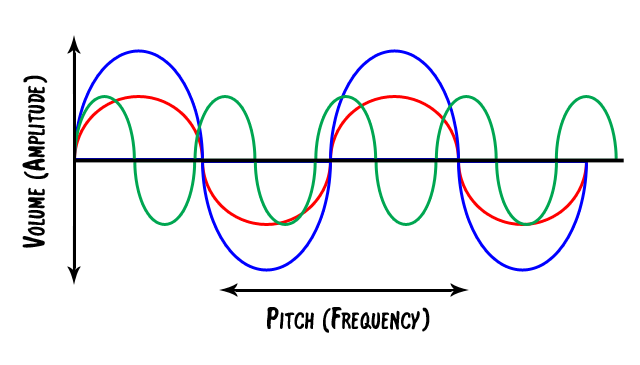Introduction to Pitch
One way that sounds are organized into music is by their highness or lowness, which is known as pitch. Pitches are played in patterns to create melodies, in sequence from low to high to create scales, and simultaneously to create harmonies. Before we can discuss these applications, we must first understand what pitch is, how different pitches are indicated on the page, and how pitches relate to each other.
Pitch and Frequency

Pitch is roughly equivalent to the frequency of a sound wave. Frequencies are measured in vibrations per second, or Hertz (Hz). Higher pitches vibrate more quickly, whereas low pitches vibrate more slowly. It should be noted, however, that frequency is a physical property of sound, whereas pitch is a perceived phenomenon that requires interpretation by the brain. Thus, although they are closely related, pitch and frequency are not synonyms. If you would like to learn more about the physics of sound, see the list of external links.
Tuning
Tuning is the process of matching pitches precisely with each other. Simply playing the "right" note doesn't always mean that the pitch matches perfectly with the other players. Instruments are affected by moisture, temperature, and time, and they must be tuned to account for the small rise or fall in pitch that these factors can cause. String instruments use tuning pegs to tighten or loosen the strings, for example, and woodwind and brass players can extend or reduce the length of their instruments by making slight adjustments at the places where sections of their instruments join.
Before performing, every instrumental music group must tune, whether it be an orchestra, a jazz band, or a rock band. We will discuss these performing groups in more detail in the section on ensembles. Singers, too, must listen carefully to the other performers to ensure that they are singing precisely the same pitch as the others, or they will be considered out of tune.

